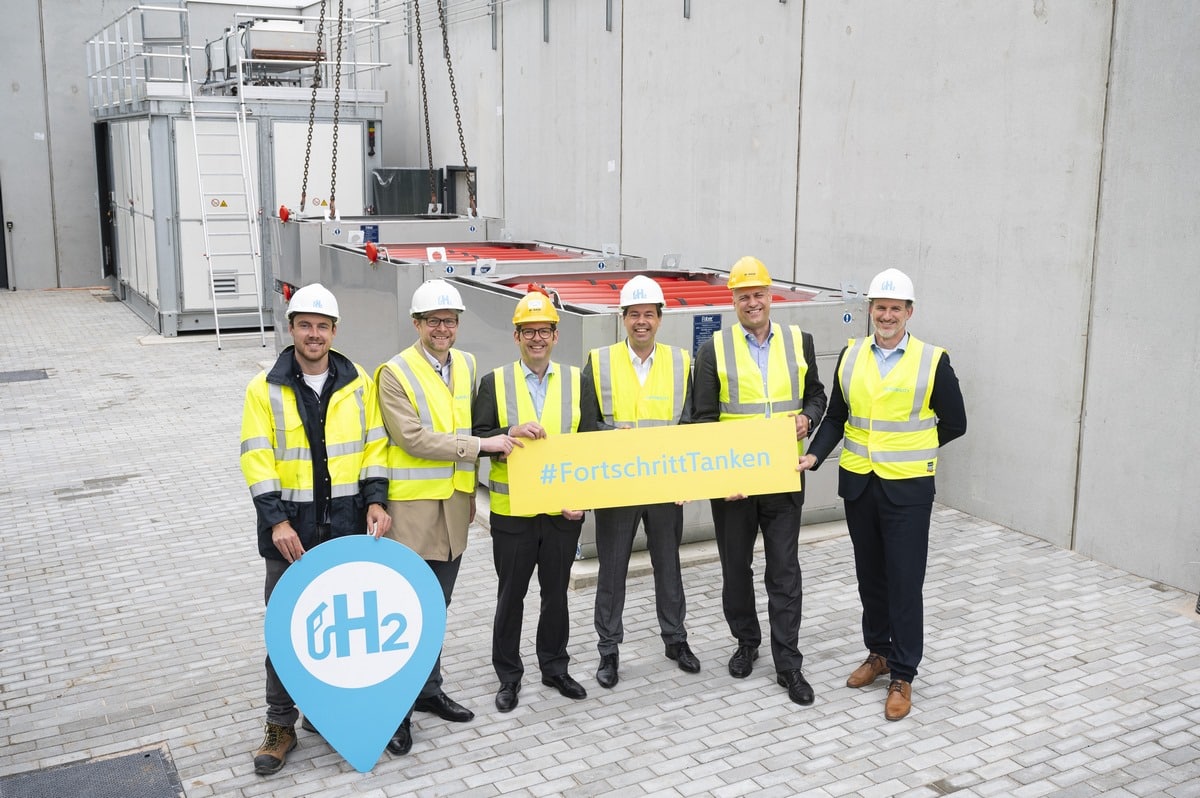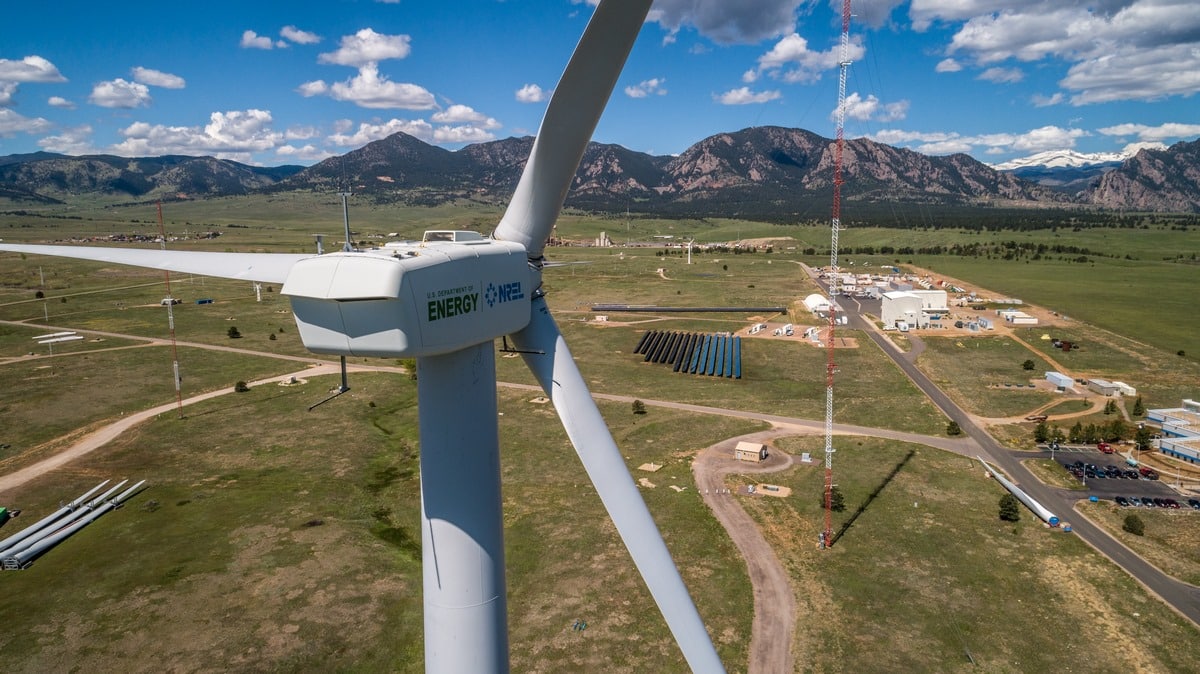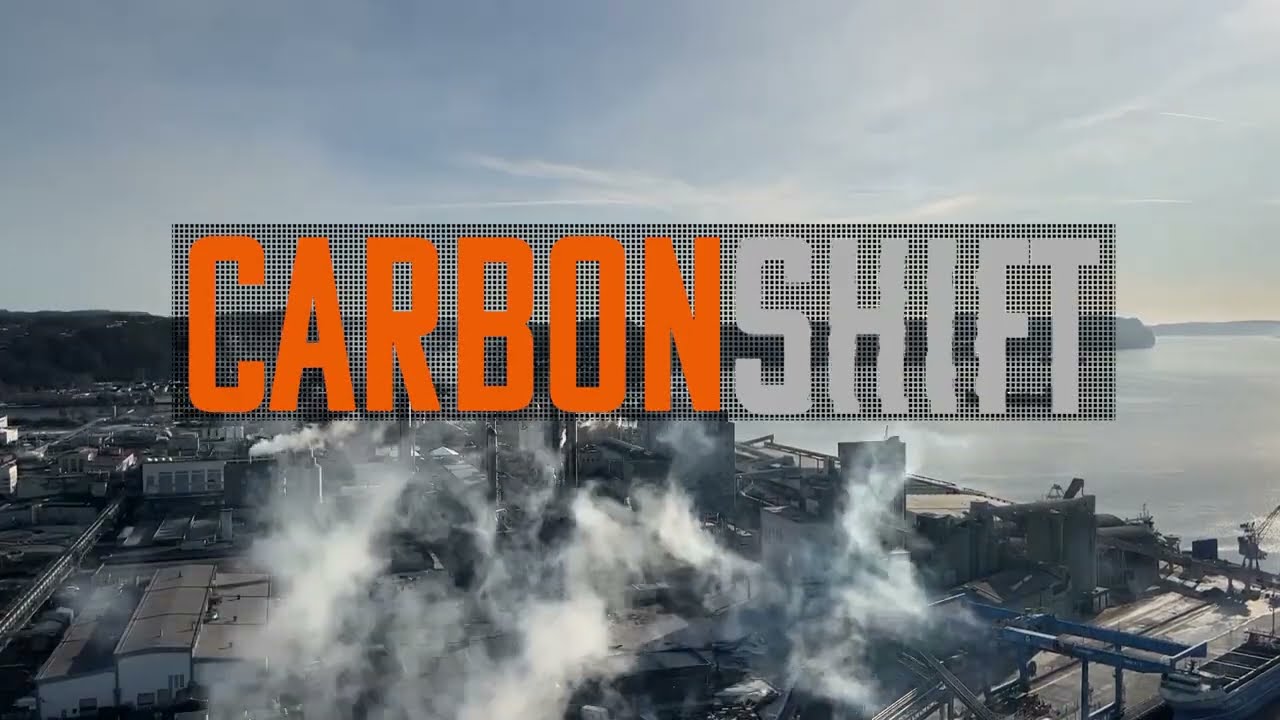
More providers and larger locations
For some months now, more and more companies have been entering the market for H2 refueling stations. Although their total number still have not substantially increased, increasingly more well-established as well as numerous new providers are announcing their intentions of opening additional locations for the supply of hydrogen.
A rather new player is, for example, Mint Hydrogen, which operated under the name Jet H2 Energy until March 2024. The Hamburg-based subsidiary of H2 Energy Europe opened its first hydrogen refueling station in Giengen an der Brenz in mid-May this year. The location is situated on the mobility hub of Jet Tankstellen Deutschland GmbH, on the federal highway A7. Oliver Reichert, Manager Retail Germany of Jet, called the Jet mobility hub, which employs the refueling technology of Maximator Hydrogen GmbH, a “reference project for us.”
Clifford zur Nieden, CEO of Mint Hydrogen Germany GmbH, added, “A reliable refueling infrastructure is crucial for the development of a regional ecosystem for renewable hydrogen and particularly important for the decarbonization of heavy goods traffic.” It is planned that vehicles from partner companies, among others, like Hyundai Hydrogen Mobility, Hylane, Keyou, Stellantis and Arthur Bus, will fill up at the new refueling station.
TotalEnergies and Air Liquide found TEAL
A clear commitment to hydrogen has also been placed by Air Liquide and TotalEnergies, as they announced at Hannover Messe 2024 that they will jointly establish a new brand: With TEAL Mobility, the two heavyweights founded a joint venture that wants to have more than one hundred H2 refueling stations for heavy commercial vehicles in operation under the TotalEnergies brand within the next ten years in Europe. By the end of 2024, there will be around 20 stations across France, the Netherlands, Belgium, Luxembourg and Germany.
Meanwhile Tyczka Hydrogen plans to build its third hydrogen refueling station in Bavaria starting mid-2025. In Geretsried, not far from the highways A70, A71 and A7, a station is to go into operation in the first half of 2026 designed for a refueling capacity of one tonne per day.
The second H2 refueling station from Tyczka, which was funded with 2 million euros by the Bavarian ministry for economy, state development and energy (StMWi) during the Bavarian refueling station program, was opened in the logistics hub Güterverkehrszentrum Augsburg June 17, 2024. Potential users of this location are Arthur Bus, BMW, Daimler Bus, Hylane, Keyou, Kühl Entsorgung, MAN, Paul Group, Quantron, SFC and Still.
“The new hydrogen refueling station is an important signal for the entire industry and a milestone for our joint efforts in sustainable mobility,” stated Thomas Zorn, managing director of Tyczka Hydrogen GmbH.
New high-performance refueling stations
Parallel to this, the construction of a hydrogen refueling station in Frankenthal from H2 Mobility and BASF is being driven forward. After important components were delivered in May 2024, the partners are planning the start of operation for the fourth quarter of 2024. Initially, 700 to 800 kilograms of hydrogen will be able to be refueled there (corresponds to more than 30 trucks or buses). The capacity is expected to double by 2027. “Demand for heavy-duty transport will also increase significantly in this region. That is why we are building new sites like the one in Frankenthal many times larger than a few years ago. In future, up to three vehicles will be able to refuel here at the same time, including buses and trucks at 350 bar and light commercial vehicles and cars at 700 bar,” according to Martin Jüngel, managing director and CFO of H2 Mobility Deutschland.
Tilmann Hezel, Senior Vice President Infrastructure at BASF location Ludwigshafen, added: “CO2-free hydrogen is an integral part of our energy transformation at the location in Ludwigshafen. At the same time, hydrogen and a sufficient H2 infrastructure are essential for a shift towards alternative drive systems. We want to use this intersection: With projects such as the H2 refueling station, but also the water electrolyzer currently under construction, we would like to support regional mobility as well as our suppliers and transportation companies at the location in switching to vehicles with fuel cell drives.”
Dr. Doris Wittneben, head of future fields and innovation at Metropolregion Rhein-Neckar GmbH, was pleased that with the hydrogen refueling station in Frankenthal, which is a component of the project H2Rivers (details coming in H2-international Feb. 2025), “another important component of the hydrogen ecosystem is being launched in the Rhein-Neckar region.”
H2 Mobility currently has over 80 public 700-bar refueling stations. Four more are in planning, construction or start of operation. In addition, the infrastructure provider owns 27 stations for the refueling at 350 bar. And 15 more 350-bar refueling options are in implementation.
Frank Fronzke, managing director and COO of H2 Mobility, declared in spring 2024 at an opening ceremony: “In Heidelberg today, one of the most significant refueling station projects of the year is officially going into operation. The size and performance of the new stations [Heidelberg, summer 2024 in Mannheim, end of 2024 in Frankenthal, beginning of 2025 in Ludwigshafen – editor’s note] represent a new H2 refueling station generation. Using powerful technology, several 350- and 700-bar vehicle types can refuel at the same location – buses, trucks, light commercial vehicles and cars.”
“Europe’s highest performing H2 refueling station”
In March 2024, construction began on a high-performance hydrogen refueling station in Düsseldorf that will have a daily capacity of over five tonnes – that is more than ten times the capacity of H2 stations currently in operation and over three times the locations that were built four or five years ago. Partners involved are, in addition to H2 Mobility, also Hoerbiger as well as Ariel.
At the focus of this new station stands a compact yet powerful compressor, which, according to the information from the manufacturer, addresses the essential customer needs of the H2 industry. Its eHydroCOM system enables a mass flow of over 250 kg/h at both low and high suction pressures, making it ideal for heavy-duty refueling stations or trailer refueling systems. The high degree of standardization and the design with compact and space-saving packaging also enables rapid scalability, making it easier for system operators to achieve their total cost of ownership targets.








